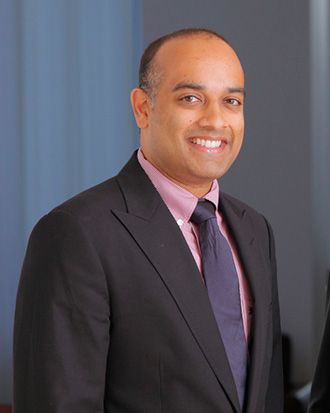Brain surgeon chases new therapies for hard-to-treat tumors
Weill Cornell Medicine neurosurgeon Rohan Ramakrishna, M.D., is adding a syringe to his tool set as he tackles recurrent glioblastoma and gliosarcoma using two potential new therapies.
In a new clinical trial announced recently on the Weill Cornell Brain and Spine site, Ramakrishna will be combining viral therapy with an immune checkpoint inhibitor, the goal is to attack tumors in a multi-pronged way, combining the tumor-killing effects of the virus with the power of the immune system. Weill Cornell Medicine is one of only a handful of locations in the United States enrolling patients in this innovative trial.
In this new trial, a patient whose glioblastoma (GBM) or gliosarcoma has recurred will be given one injection of the genetically modified adenovirus DNX-2401, delivered directly into the tumor through a burr hole. The injection will be followed by regular IV infusions of pembrolizumab, an immune checkpoint inhibitor intended to spur the body’s own immune system to attack the tumor. The infusions will be given every three weeks for up to two years to monitor their effectiveness against the tumor.
Glioblastoma and gliosarcoma are two of the most difficult brain tumors to treat, as they have proved resistant to surgery, chemotherapy, and radiation. Gene therapy and immunotherapy are cutting-edge technologies aimed at inoperable and recurrent brain tumors, holding out new hope for patients with these diagnoses.
This new clinical trial complements a viral gene therapy trial announced in March, in which researchers are testing the retroviral replicating vector Toca 511 used in combination with an oral medication called Toca FC.
In that trial, the tumor is resected and the replicating vector is injected into the surrounding brain. This vector replicates in any residual tumor cells and converts inactive chemotherapy into active chemotherapy thereby killing the tumor cell and avoiding systemic side effects.



